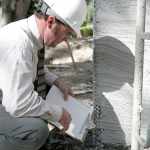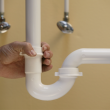Studies suggest that 50 to 70 million Americans suffer from sleep-related problems. However, some of these issues are temporary, while others are serious problems that need a consultation.
If you are one of the many people experiencing trouble sleeping, you might be wondering when to see a sleep specialist? And what are the different signs that indicate it’s time to get a consultation?
Keep reading for our ultimate guide to a sleep consultation and how to know when it’s time to get help.
Table of Contents
What Is a Sleep Consultation?
A sleep consultation is a meeting with a sleep expert who can help narrow down the possible causes for insomnia or trouble sleeping. During the consultation, the specialist will ask you a number of questions to determine the cause of your sleeping issues.
According to your answers, the sleep consultant will offer a diagnosis. They will also provide possible solutions to help resolve your condition. Further sessions might be necessary to track your progress and offer alternative treatments.
Most sleep consultants offer a virtual sleep consultation to ensure safety during the pandemic. Clinics that still operate in-person sessions will likely have a number of hygiene measures in place.
What Are Sleep Specialists?
When we discuss sleep specialists, we are referring to a wide range of professionals. They each have different areas of expertise, all related to sleep. This might include psychiatrists, respiratory therapists, pediatricians, or neurologists.
For example, the team at Silent Night Therapy is led by Dr. Brown who is trained in dental sleep medicine. This means he is well-placed to diagnose and treat patients suffering from sleep apnea which is one of the major causes of insomnia.
When Do You Need to Speak to a Professional?
Now, let’s consider the signs that tell you when to have a sleep consultation. If your lack of sleep is so severe that you are unable to perform daily activities, this is a clear sign to consult a specialist. Feeling consistently tired during the day even after sleeping the previous night can also be a cause for concern.
Also, if you or your partner notices heavy snoring or gasping for air during sleep, this could suggest that you have sleep apnea. It is important to confirm a sleep apnea diagnosis because of the associated risks of heart failure and strokes.
Finally, an ongoing inability to fall asleep and get the recommended 7-9 hours of sleep per night is a good reason to consult a sleep professional.
Don’t Be Afraid to Ask for Help
Now that we’ve covered what can a sleep consultation help with and when it’s time to see one, you can consider whether it’s time to get help. Getting insufficient sleep on a long-term basis can have a serious impact on your overall health.
If you’re still unsure if a sleep consultation is necessary, consult with your physician who will be able to advise you further.
If you found this article about when to see a sleep consultant helpful, take a look at our other health-related articles.

















